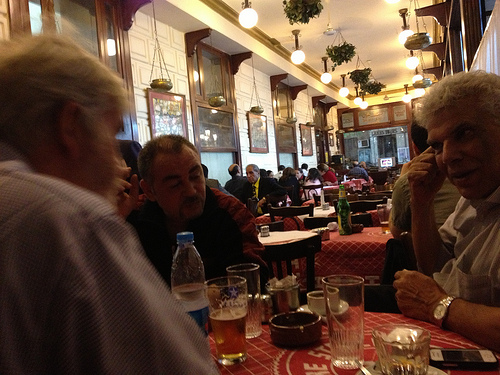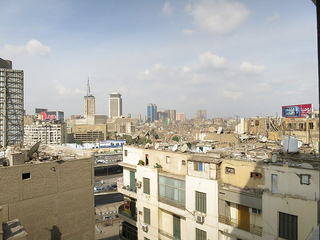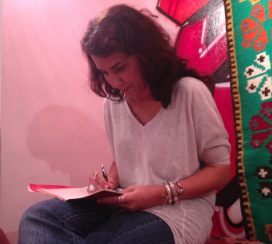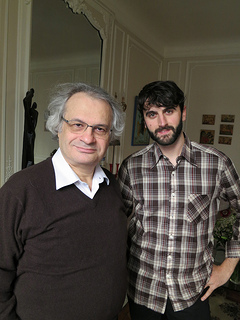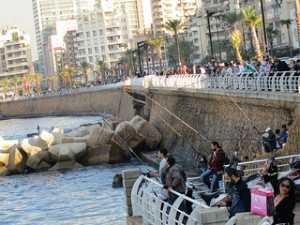
First of all don’t read too far into the title, I was in Beirut for less than a week and no one who has been in a city for such a short time should be telling you about that city. That said, I spent almost 5 glorious days in that most legendary place of joy and heartbreak. Here’s what I learned in a nutshell:
Beirutians will waste no time in telling you that they live for today, not knowing if society will break down tomorrow and fall back into a state of war. With this rather disheartening piece of information out in the open, they will then show you their town, a place filled with beautiful activities and inspiring personalities. Sure, the roads leading down the hills to the sea side may feature the occasional machine gun nest or guard post, but once you arrive at the corniche you will be treated to a never-ending array of happy people watching. They’re sun bathing, riding bikes, fishing, playing sports on the makeshift beach. Tomorrow may be uncertain, but you can bet they’re going to enjoy (and look good) today. And then afterwards they will eat like perhaps there is no tomorrow! With some of the most delicious ingredients your taste buds have ever known. I don’t usually spend my time talking about food or the role food can play in art or politics, but in Lebanon I learned it can play a part in all of those areas and beyond. “Food can disarm” I remember Barbara Massad telling us as she fed us during an interview in her cozy kitchen, and she went on to tell us of the time that indeed food did get her out of a difficult situation with a Hezbollah militant.
I’m sure those more experienced as both observers and residents of Beirut would yell at me for only telling stories of happy or delicious encounters. I’m irresponsible, probably, if I don’t mention the infamous tension just below the surface. And surely life is not ok for a huge amount of Lebanese who feel the economic and perhaps social strains of this moment in the country’s history. I won’t even try to explain the maddening situation in refugee camps, which I was not able to go into but I did learn a great deal about (for a future post and podcast).
No for now I want to be nice and irresponsible. Beirut is magical. Beirut can pick you up and show you things perhaps you didn’t know you wanted to see. Or perhaps you’ll also notice the things that everyone wishes were not so painfully visible. However you choose to spin it, my impression was one filled with interesting days and dynamic nights that I hoped would never end. An brief yet educational visit filled with daily discussions made it very clear that there is much more to learn and do in this country – and a followup is needed soon! In a world that needs so badly to understand differences and resolve conflicts, maybe the key can be found right in one of the most fragile yet inspiringly diverse nations in the world. Beirut… I’ll be right back.
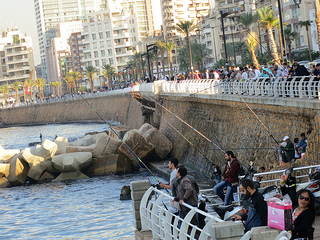
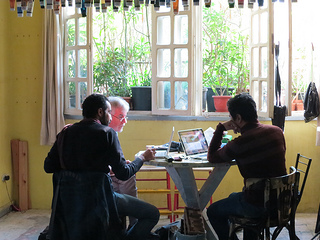
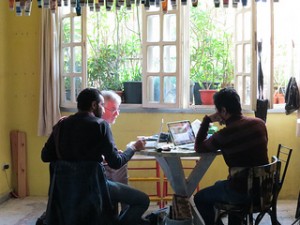
 We’ve wandered into an artists’ studio where every friday a group of friends gather in what they describe as a weekly ritual of conversation and camaraderie. And despite our presence disrupting the usual flow of conversation, the group is pleased to have us and we are each immediately greeted with explanations and examples of their work. The youngest among them is 22 years old and she shows me her interactive art installations that focus on surveillance culture. She clicks through the images and explains how it works and where it is on display now. “If I had known you were coming I would have brought my marionettes” she later tells me. Meanwhile one by one they explain their work and their feelings about the past two years. In the difficult events at Tahrir in 2011, they lost friends, including one of their regular colleagues of the Friday open studio, who was killed by a sniper. They speak about him and how they lived those days, all of them at the square of course, where they still return to as part of the Friday ritual. “We will have tea, finish our discussions, and head over to Tahrir later today,” we were told several times.
We’ve wandered into an artists’ studio where every friday a group of friends gather in what they describe as a weekly ritual of conversation and camaraderie. And despite our presence disrupting the usual flow of conversation, the group is pleased to have us and we are each immediately greeted with explanations and examples of their work. The youngest among them is 22 years old and she shows me her interactive art installations that focus on surveillance culture. She clicks through the images and explains how it works and where it is on display now. “If I had known you were coming I would have brought my marionettes” she later tells me. Meanwhile one by one they explain their work and their feelings about the past two years. In the difficult events at Tahrir in 2011, they lost friends, including one of their regular colleagues of the Friday open studio, who was killed by a sniper. They speak about him and how they lived those days, all of them at the square of course, where they still return to as part of the Friday ritual. “We will have tea, finish our discussions, and head over to Tahrir later today,” we were told several times.